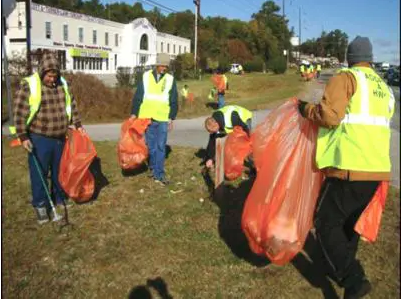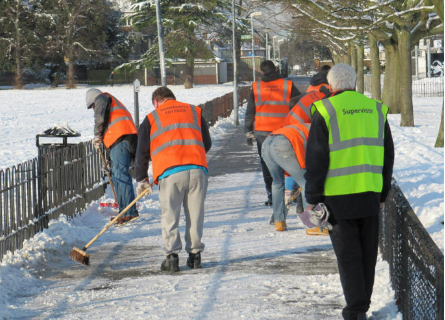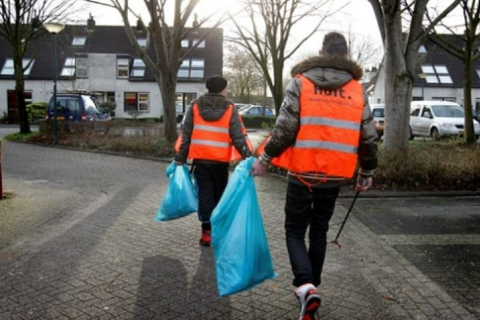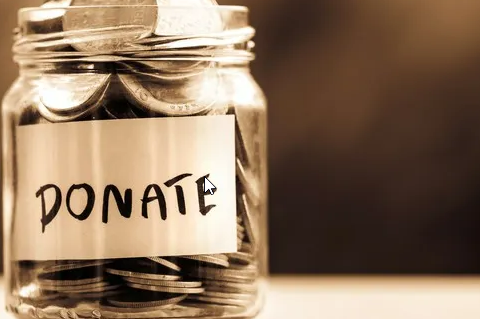In the criminal cases, sentencing has two purposes. The first one is punitive and the second one is rehabilitative. Among the sentencing options that are usually given by the judges to the offenders, one of the most common one is community service. What is community service?
According to the Legal Dictionary by TheFreeDictionary, the community service refers to a sentencing option for persons convicted of crimes in which the court orders the defendant to perform a number of hours of unpaid work for the benefit of the public. An individual convicted of a criminal offense may be required to complete a sentence of community service directly or as an express condition of probation. Usually, the community service will involve performance at a facility that has been authorized by the court or probation department. Community service is appropriate when it is reasonably designed to repair the harm caused by the offense.
In short, community service is unpaid work performed in the community. A judge has the right to order community service in addition or in lieu of the other sentencing options such as incarceration, probation, fines, or restitution. Usually, it is ordered to low level property crimes or to the first time nonviolent offenders. In the past, it was given to misdemeanor crimes. As of now, it is usually ordered to felonies as well.
As it is ordered by the judges of courts, community service is also known as court-ordered community service. Besides, some people also call it community restitution. Actually, ordering community service as part of the sentence of the defendant for a criminal conviction is a common thing and it is not new.
What are the examples of the court-ordered community service? There are a number of examples of court-ordered community service. Some of the most common ones include helping out at non-profit organizations, helping government agencies, helping small local businesses, and many more. The kinds of community service ordered by the judges vary. Some judges order community service that is related to the crime that the offenders have done. For example, in a case of drunk driving or DUI, the kind of community sentence that is asked might be to speak at a school about how bad and dangerous drunk driving is.
Not only that, the kind of community service that is ordered by the judge can also be related to the skills of the offender. One of the most popular cases involved Martha Stewart. Martha Stewart once asked to do a total of 1,000 hours of community service or 20 hours a week at a nonprofit as a volunteer at an organization that offers to preach financial advice and loans to low income women called the Women’s Venture Fund. She would love to do that instead of facing 10-16 months in federal prison. She was eager to teach these women how to run a business. The request sent by her was actually supported by the President of the Women’s Venture Fund. To support her, the President even sent a letter to the court regarding the advantages that could be offered by Stewart for the women in the program. Unfortunately, her request to do community service was rejected.
The next example of popular court-ordered community service involved Joey Chen. The man pleaded guilty to one count of wire fraud and honest services wire fraud. When the plea hearing took place, he admitted that he took his role in a college admissions scandal. He said he paid Rick Singer $75,000 to bribe a college test administrator so that someone could allow the answers of his son secretly. His plea agreement, subject to court approval, such as a sentence of 9 weeks in prison, 1 year of supervised release, 100 hours of community service, and $75,000 fine.
In the federal system, the judge has the right to decide which type of the community service sentence is given to the offenders. In Chen’s case, he agreed to serve 100 hours of community service when he goes to supervised release. In his case, 100 hours of community service is not a lot or too much. It is fine. It is actually lesser compared to the other ones who were also involved in the college admissions scandal. Unlike Chen, the other ones were ordered to do community service of 300, 500, and even 900 hours.
In Chen’s case, another high profile defendant was sentenced with 14 days in prison, 250 hours of community service, 1 year of supervised release, and a fine of $30,000. Aside from that, there is also another one that was sentenced with 2 months in prison, a fine of $250,000, 3 years of supervised release of probation, and 900 hours of community service.
In addition to Martha Stewart’s and Joey Chen’s case, some other examples of court-ordered community service include:
- An American singer named Bobby Brown served 240 hours of community service for a drunk driving conviction.
- An American actress named Winona Ryder received 480 hours of community service for a shoplifting conviction in 2001.
- An American author, Jenna Bush had to do 36 hours of community service for her underage drinking case. Meanwhile, her sister Barbara had to do 8 hours of community service.
- An investment banker named James McDermott was sentenced to 8 months in prison and 300 hours of community service in 2000 for his insider trading case.
- The former CEO of Sotheby, Diana Brooks, was ordered by the court to do 6 months of home confinement and 1,000 hours of community service in 2002 as the punishment for her taking a role in a price fixing scheme.
Similar to the other kinds of punishments, anyone who fails to complete the community service order can get arrested for contempt of court or failure to comply with a court order. Even though some people use community service to avoid prison or to get reduced time in custody, it is still important and has to be taken seriously.

A bookworm and researcher especially related to law and citizenship education. I spend time every day in front of the internet and the campus library.





